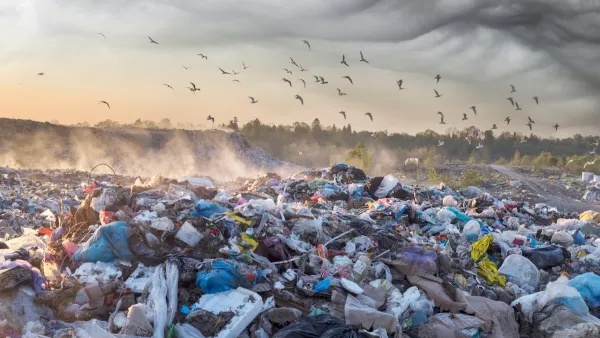Air pollution is more likely to take years life off the lifespan of the average human than any other external factor, according to a recent report out of the University of Chicago.

Air pollution is the most significant public health threat on the planet, according to the most annual Air Quality Index report by the Energy Policy Institute at the University of Chicago (EPIC). According to the report, just meeting the World Health organization’s guideline limits for fine particulate pollution would add 2.3 years to the expected lifespan of the average individual.
An article by Issam Ahmed for Phys.org provides more details from the study, noting that pollution from vehicles, industry, wildfire, and more contributes to lung disease, heart disease, strokes, and cancer.
“Asia and Africa bear the greatest burden yet have some of the weakest infrastructure to deliver citizens timely, accurate data,” writes Ahmed. “They also receive tiny slices of an already small global philanthropic pie.”
Among the countries facing the worst air pollution in the world, Bangladesh, India, Nepal, and Pakistan top the list. The article also notes that China as made significant progress in improving its air quality. “Its air pollution dropped 42.3 percent between 2013 and 2021. If the improvements are sustained, the average Chinese citizen will be able to live 2.2 years longer,” reports Ahmed.
In the United States, wildfires are significantly worsening air quality in parts of the country. “For example, California's historic wildfire season of 2021 saw Plumas County receive an average concentration of fine particulate matter more than five times over the WHO guideline,” according to Ahmed.
FULL STORY: Air pollution greatest global threat to human health, says benchmark study

Planetizen Federal Action Tracker
A weekly monitor of how Trump’s orders and actions are impacting planners and planning in America.

Maui's Vacation Rental Debate Turns Ugly
Verbal attacks, misinformation campaigns and fistfights plague a high-stakes debate to convert thousands of vacation rentals into long-term housing.

Cuomo Is the Candidate of Both NIMBYs and Developers. What Gives?
In the New York City mayoral race, odd bedfellows align to preserve the housing status quo.

The Subversive Car-Free Guide to Trump's Great American Road Trip
Car-free ways to access Chicagoland’s best tourist attractions.

San Antonio and Austin are Fusing Into one Massive Megaregion
The region spanning the two central Texas cities is growing fast, posing challenges for local infrastructure and water supplies.

Charlottesville Temporarily Has No Zoning Code
A judge ordered the Virginia city to throw out its newly revised zoning code, leaving permitting for new development in legal limbo.
Urban Design for Planners 1: Software Tools
This six-course series explores essential urban design concepts using open source software and equips planners with the tools they need to participate fully in the urban design process.
Planning for Universal Design
Learn the tools for implementing Universal Design in planning regulations.
Heyer Gruel & Associates PA
JM Goldson LLC
Custer County Colorado
City of Camden Redevelopment Agency
City of Astoria
Transportation Research & Education Center (TREC) at Portland State University
Jefferson Parish Government
Camden Redevelopment Agency
City of Claremont





























